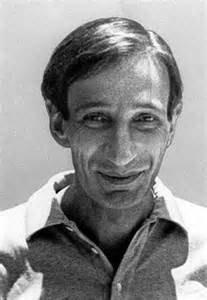
This guest post is part of our continuing series on the center-left roots of school choice.
It may be hard for younger readers to imagine a time when to be anti-establishment was a position of the political left.
Today, of course, the left is so well-ensconced in positions of power and influence in academia, media, the professions and government that those who criticize any of these bastions are immediately labeled as belonging to a neolithic right that does not appreciate the ever-unfolding benefits of the new establishment’s guidance.
In the 1960s, though, to be critical of the establishment was the hallmark of the left. And no one did so with more radical intellectual sophistication than Ivan Illich, a Catholic priest and influential activist born in Austria in 1926.
Illich was best known for his leadership of the Centro Intercultural de Documentación at Cuernavaca, Mexico, which he founded in 1961 and shut down in a storm of conflict in 1976. Ostensibly a language school, CIDOC was chiefly known for its critique of the “neo-colonialism” practiced, Illich argued, by missionaries, the Alliance for Progress, and the Peace Corps, and it drew notable educational reformers of the era, including John Holt and Paul Goodman. In 1967, I staffed a conference in Puerto Rico of Christian Social Relations staff from across the United States. Illich was the primary speaker, and I can testify to his passionate eloquence in private conversations as well.
In “Deschooling Society” (1971), Illich directed that eloquence against the American educational system. He portrayed it as an unreformable bureaucracy devoted to the forced-feeding of conventional ideas into passive youth. The various reforms proposed at the time, including progressive “alternative schools” and “new attitudes of teachers toward their pupils,” he wrote, would not provide the education needed by contemporary society, nor would “the attempt to expand the pedagogue’s responsibility until it engulfs his pupils’ lifetimes.”
“School,” Illich insisted, “has become the world religion of a modernized proletariat, and makes futile promises of salvation to the poor of the technological age. The nation-state has adopted it, drafting all citizens into a graded curriculum leading to sequential diplomas not unlike the initiation rituals and hieratic promotions of former times. The modern state has assumed the duty of enforcing the judgment of its educators through well-meant truant officers and job requirements.”
What was needed instead, he continued, were “educational webs which heighten the opportunity for each one to transform each moment of his living into one of learning, sharing, and caring.” Specifically, individuals should be enabled to acquire the skills currently taught in schools (badly, in Illich’s view, and with accompanying bad habits and attitudes) through other routes, including individual or group tutoring and mentoring by those competent to teach a particular skill.
Of course, “free and competing drill instruction is a subversive blasphemy to the orthodox educator,” but Illich argued it would be both efficient and liberating. Above all, it would deprive government of a major instrument for regimenting its citizens. “The first article of a bill of rights for a modern, humanist society,” he wrote, “would correspond to the First Amendment to the U.S. Constitution: ‘The State shall make no law with respect to the establishment of education.’”
Illich supported school choice, with caveats.
He offered a partial endorsement of a 1971 proposal by educational sociologist Christopher Jencks “to put educational ‘entitlements’ or tuition grants into the hands of parents and students for expenditure in the schools of their choice.” Jencks and others would conclude, in an important study of education’s role in perpetuating social injustice in the United States (“Inequality: A Reassessment of the Effect of Family and Schooling in America,” 1973), that “the ideal system is one that provides as many varieties of schooling as its children and parents want and finds ways of matching children to schools that suit them. … since professional educators do not seem to understand the long-term effects of schooling any better than parents do, there is no compelling reason why the profession should be empowered to rule out alternatives that appeal to parents, even if they seem educationally ‘unsound.’”
The left-libertarian Illich concurred to a point. His disagreement with the socialist Jencks was that “educational entitlements restricted to use within schools play into the hands of all those who want to continue to live in a society in which social advancement is tied not to proven knowledge but to the learning pedigree by which it is supposedly acquired. This discrimination in favor of schools which dominates Jencks’s discussion on refinancing education could discredit one of the most critically needed principles for educational reform: the return of initiative and accountability for learning to the learner or his most immediate tutor.”
Illich might have offered a more enthusiastic endorsement for today’s education savings accounts. ESAs expand educational choice beyond schools, and give parents the power, through public funding, to pick and choose from a broad menu of educational options, and to serve up the educational nourishment they deem best for their children. With ESAs, parents determine how much, or little, they want to rely on schools. Illich would have been intrigued, and possibly even thrilled.
But let’s not lose the point about Illich, the left and visions of educational freedom.
Illich and Jencks, both politically left of center, may have disagreed about whether schools should continue to serve as the primary venue for the acquisition of skills and education more broadly, but they were in agreement that the bureaucratically-managed educational establishment had lost its credibility. They believed youth and their parents should be trusted to make sound decisions, supported in those decisions by the public funds that were then, and now, appropriated to support their education.
Full disclosure: This blog is hosted by Step Up For Students, a nonprofit which helps administer Florida’s tax credit scholarship program, the largest private school choice program in the nation, and the state’s Personal Learning Scholarship Accounts program, its education savings accounts for students with special needs.


